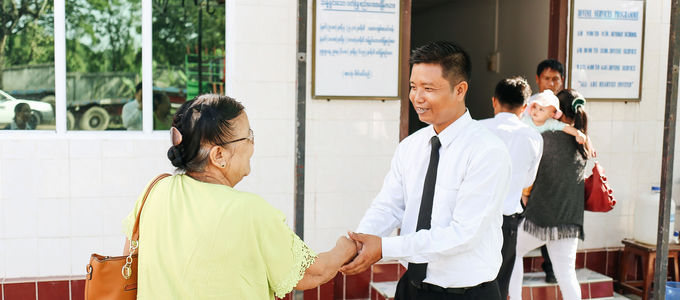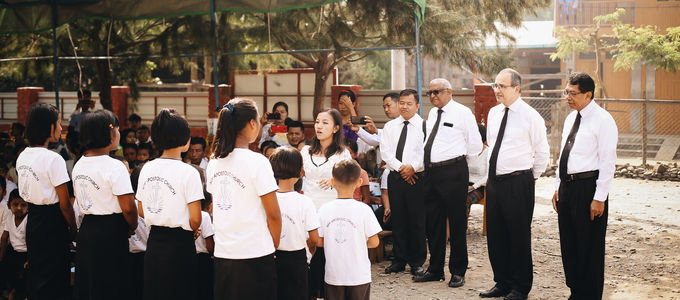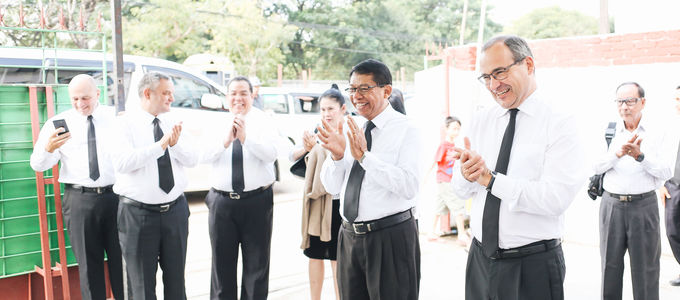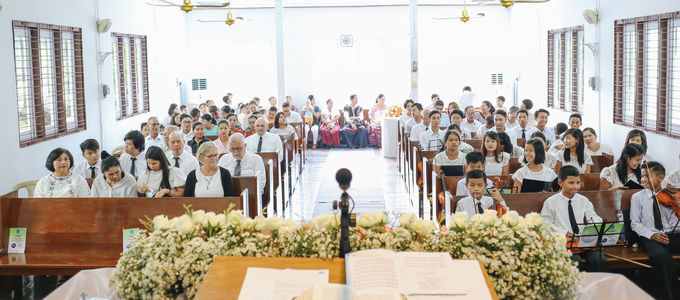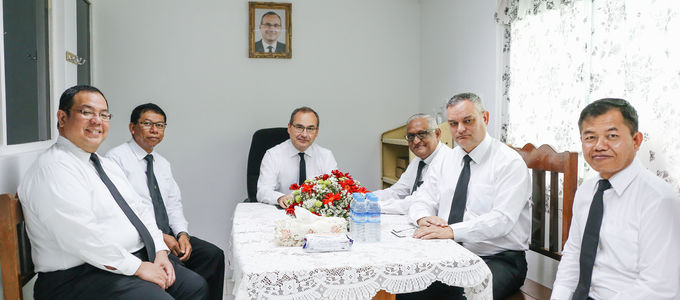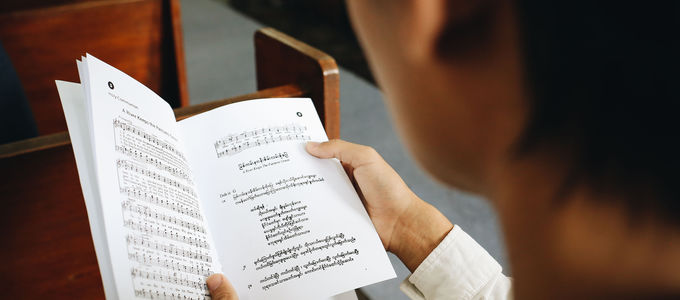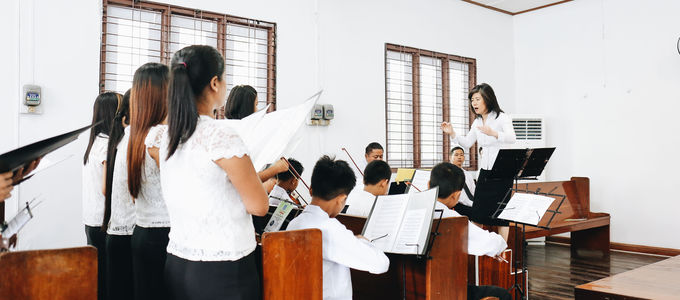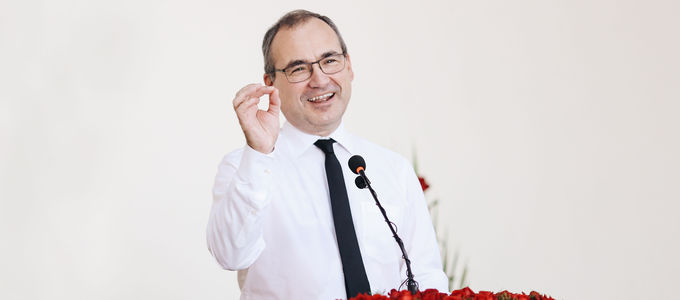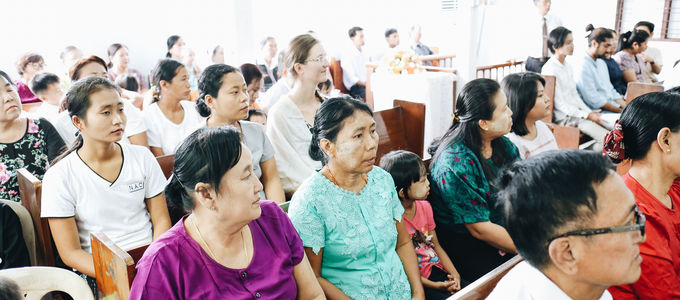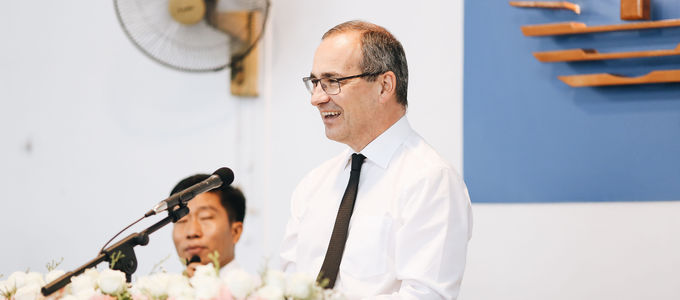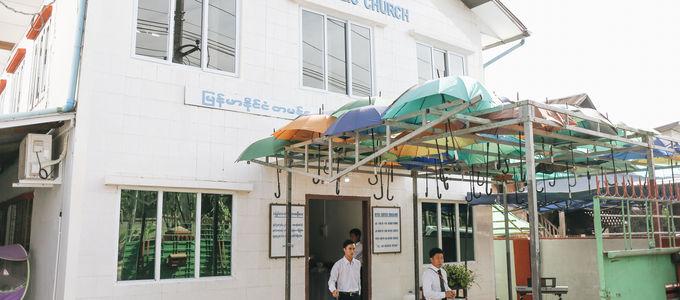
Last year in late autumn, the Chief Apostle visited New Apostolic congregations in Malaysia and Myanmar. His travel itinerary included two ministers’ meetings, a meeting with the Apostles of South-East Asia, two concerts, and three divine services.
On Wednesday, 30 October 2019 the Chief Apostle set of for Kalaymyo, one of the most rapidly growing provincial towns in Myanmar. In the Burmese language, Kalaymyo means “town of children”. It lies on the border with the Chin state. The Chins are a separate ethnic group in western Myanmar. At 80 to 90 percent of the population, the region is considered very Christian. In Kalaymyo alone there are said to be over 600 Christian congregations.
All about treasure in the field
The Bible text that Chief Apostle Jean-Luc Schneider used for his sermon is recorded in Matthew 13: 44–46: “Again, the kingdom of heaven is like treasure hidden in a field, which a man found and hid; and for joy over it he goes out and sells all that he has and buys that field. Again, the kingdom of heaven is like a merchant seeking beautiful pearls, who, when he had found one pearl of great price, went and sold all that he had and bought it.” The message was thus: gather up divine wealth and sell off your own treasures!
“Some commentators are of the opinion,” said the Chief Apostle as he began his sermon, “that the aforementioned treasure in the field symbolises the human soul. Hidden from our eyes, it can only be seen by Jesus, who gave His life to save it.”
“However, most exegetes believe that both the treasure and the pearl represent salvation in Christ, eternal fellowship with God.” According to this understanding, some would have access to salvation without really having sought after it. Others, by contrast, would have had to seek a long time before finding it. “In either case, in order to gain access to eternal fellowship with God, it will not suffice to merely receive the sacraments. We must also sell all that we have. In other words, we must deny ourselves.” Such was the clear statement from the Chief Apostle.
Human beings must
- renounce evil, and cannot define for themselves what is right and wrong.
- obey the will of God without circumventing it.
- heed His commandments without attempting to diminish those that do not suit them.
Trusting and denying ourselves
Instead, it is important to trust in God, even if we do not always understand His actions. Often enough, this is difficult to achieve:
- “We do not expect God to reward us for our good deeds. Salvation is an expression of grace. We cannot buy it by bringing offerings. We cannot earn it by doing good works. Our self-denial, our sacrifices, and our good works reflect the significance we assign to our salvation. They express our sincere desire to enter into fellowship with God.”
- “We dispense with the notion that every guilty person should be punished by God. We are not indignant if God loves our neighbour exactly as He loves us, and grants him the same grace He grants us. We forgive our neighbour just as God forgives us. We would rather give up our own point of view than jeopardise the unity of God’s children.”
Not poor, but rich!
“We will not become poor by denying ourselves,” said the Chief Apostle. “Quite the contrary: we become rich in Christ!” God offers us the greatest treasure of all: eternal fellowship with Him.






